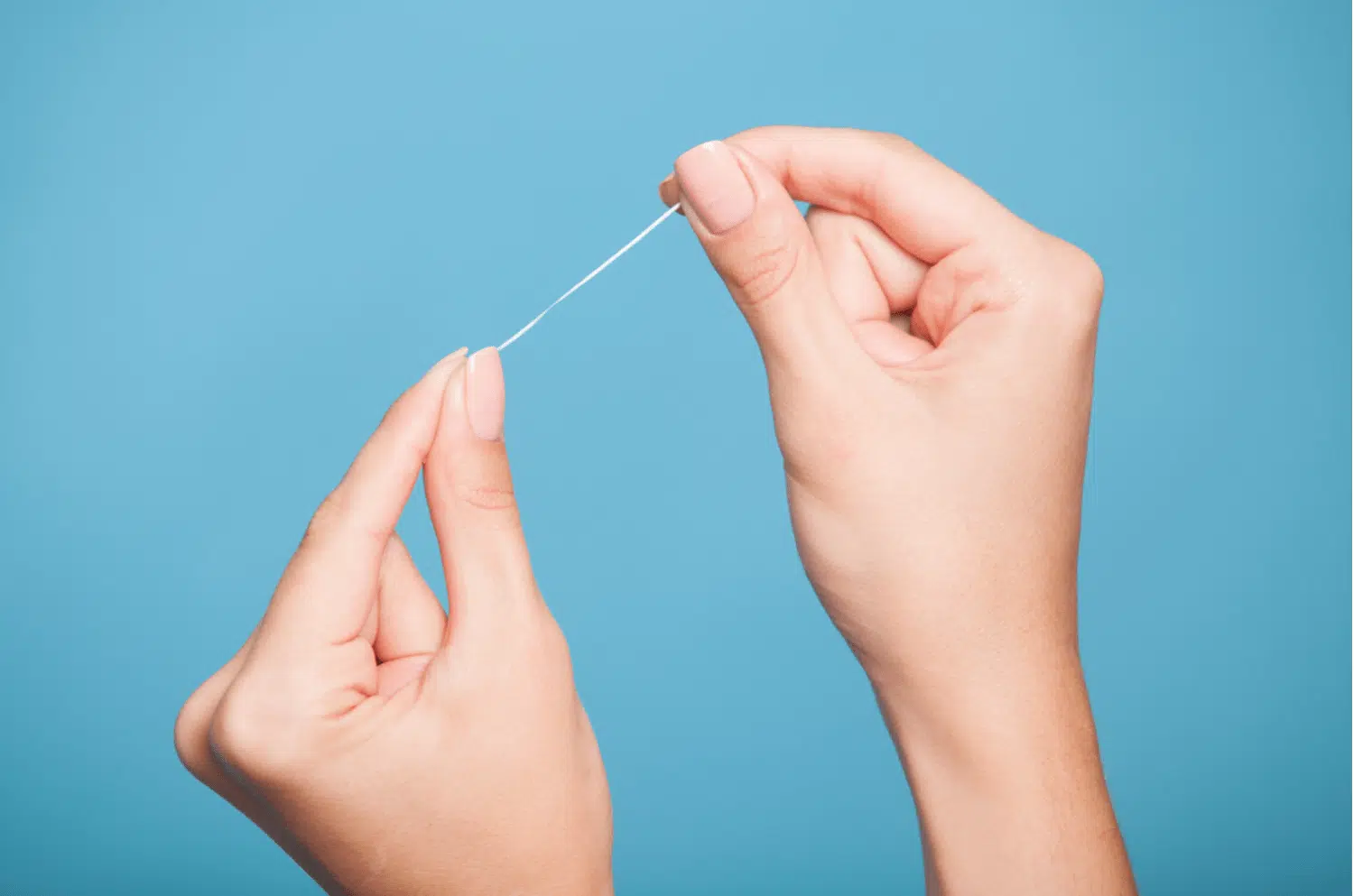Flossing is a step that many of us overlook but it should be a regular part of your oral care routine. Flossing helps to remove food that your toothbrush may miss. It also helps to remove plaque and other build-ups. There are different types of teeth flossing tools on the market. Most will do the job effectively, so it is down to personal choice. At Beaches Dental Mona Vale, we care about the health of your teeth. We are always happy to give our patients personalised treatment plans and oral health advice for their teeth.
In this article, we will discuss why you should always keep teeth flossing tools in your home. We will look at the different types available and why flossing is so important.
What are the common types of dental floss?
Dental floss helps to remove food that gets stuck in between our teeth. Tooth brushing alone may not reach these stubborn bits of food. Traditional dental floss is probably the most common flossing tool for teeth. It is readily available in most supermarkets and pharmacies. It is also inexpensive and effective.
There are many different types of teeth flossing tools out there. It can be a bit overwhelming, so we’ve compiled a list of the most common types and how they differ.:
Waxed vs. unwaxed dental floss
When purchasing dental floss, you may notice there are two options: waxed and unwaxed. Both types are made from synthetic material. Waxed floss has a thin coating of wax which makes it slightly thicker than unwaxed floss. This wax helps it slide between teeth with ease. Unwaxed floss does not have this coating. This means it is thinner which helps if you have very tight spaces between your teeth.
Both waxed and unwaxed floss are equally effective so choose the one that works best for you be it based on feel, ease of use or thickness.
Dental tape
Dental tape is a wider flatter version of dental floss. It also comes in waxed and unwaxed options. Dental tape is perfect for people with wider gaps between their teeth. It may also be referred to as ribbon tape or wide floss. If you have tried dental tape and find It difficult to squeeze between your teeth, then floss may be a better option. If you are unsure, just ask your dentist. They will be able to recommend if dental tape is right for your teeth.
Water flosser
A water flosser is a more modern invention than traditional floss. It is perfect for people who struggle to or cannot use traditional floss. This may be because of periodontal disease, gum sensitivity, arthritis, braces, cosmetic dental work or personal preference. A water flosser sprays a thin stream of water between your teeth to remove food and build up. It may take a bit of practice to get used to, and don’t forget to use it over the sink to avoid a mess. It can be just as effective as traditional flossing when used correctly.
Floss picks
A floss pick is a convenient hand-held plastic pick with a string of floss across the top. They are a useful tool to keep in your bag and use between meals. They are not considered to be a replacement for dental floss. This is because they cannot reach all the areas that traditional floss can.
Interdental brushes
Interdental brushes are small plastic or bamboo rods with little thin brushes on the end that look almost like mini-pipe cleaners. These tiny brushes fit in between your teeth above the gum line to release trapped food. Interdental brushes come in multiple sizes, so they can fit nicely between your teeth without hurting your gum. These are a great option for larger spaces, under orthodontic wires and for people who can`t get floss between their teeth.
How often should I floss?
It is recommended that you floss once a day. This can be either in the morning or evening, before or after brushing. Patients often ask if it is better to floss before or after you brush your teeth. There have been studies to suggest that flossing first loosens bacteria and food particles. Brushing afterwards then cleans it all away. However, it is completely up to you, both ways remain effective.
You may floss more than once a day if you wish. This might mean using dental picks throughout the day. Just make sure you are not flossing too vigorously if you do it multiple times a day. This may cause discomfort and damage to your gums.
Why should I make flossing a habit?
Flossing is such an important step in your oral care routine. Brushing your teeth will not effectively remove all the food particles, bacteria and plaque from your teeth. Plaque is a build-up of bacteria that forms within 24-48hrs if it isn’t removed. This is why it’s essential to floss every day. Flossing can also help to prevent damage like tooth decay and cavities.
Summary
There are plenty of different teeth flossing tools available. You can try out different types and decide which is best for you. It is important to floss every day. Your teeth will thank you for it. It keeps them healthier and brighter. If you’d like some more advice about how to care for your teeth, then give us a call.

